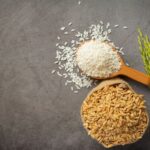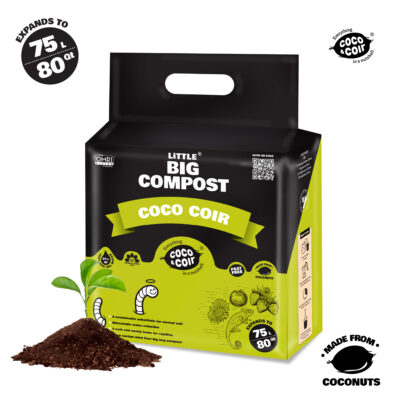If you’ve noticed more gardeners talking about sustainability, composting, and organic practices lately, you’re not imagining it. People are thinking more about where their gardening products come from—and peat is at the center of this green revolution.
The Shift Away from Peat-Based Products
Peat-based compost has long been a staple in garden centers. But now, thanks to growing environmental awareness and policy changes, many are switching to peat free options—and for good reason.
What Makes Compost Peat Free?
Key Ingredients in Peat Free Compost
Peat free composts skip the destructive harvesting of peat and instead focus on renewable, plant-based components.
Common Alternatives to Peat
Coir
Sourced from coconut husks, coir is fibrous, sustainable, and excellent at holding water.
Bark and Wood Waste
Adds bulk and structure to the compost while helping with aeration.
Composted Plant Waste
Grass cuttings, leaves, and veggie scraps make nutrient-rich fillers.
Worm Castings
Yes, worm poop. It’s a natural fertilizer and soil conditioner loaded with microbes and nutrients.
Environmental Reasons to Go Peat Free
Destruction of Peatlands
Peatlands store massive amounts of carbon and support rare wildlife. Digging them up for compost devastates both.
Peat and Carbon Storage
Peat bogs store more carbon than forests. When disturbed, they release greenhouse gases into the atmosphere.
Wildlife Conservation
Many species rely on peatlands for survival—once gone, these habitats are nearly impossible to restore.
Benefits of Using Peat Free Compost in Your Garden
Improves Soil Health
Peat free compost encourages beneficial microbes and fungi that support long-term soil fertility.
Encourages Healthy Root Growth
Looser, more aerated soil means roots can grow strong and deep, helping your plants thrive.
Better Water Management
Many peat alternatives retain moisture just as well and drain more effectively than peat.
Renewable and Readily Available
Unlike peat, these ingredients can be sourced without harming the planet and are often locally produced.
Misconceptions About Peat Free Compost
“It Doesn’t Work as Well”
Not true. With the right type for your plant and good watering habits, peat free compost performs just as well.
“It’s Only for Organic Gardeners”
Whether you’re a casual hobbyist or growing your own veg patch, peat free compost benefits everyone.
“It’s Too Expensive”
While slightly pricier, the environmental return is massive. And costs are coming down as demand grows.
How to Choose the Right Peat Free Compost
Match Compost Type to Plant Needs
Some peat free blends are better for pots, others for beds or seeds. Always choose based on your specific use.
Read the Label Carefully
Look for mixes labeled for the right purpose, and check the ingredients for coir, green waste, or bark.
Look for RHS or Organic Certifications
These badges mean the product meets certain environmental and quality standards.
DIY Peat Free Composting at Home
What You’ll Need
- A compost bin or pile
- Browns (paper, leaves, straw)
- Greens (kitchen scraps, fresh plant waste)
- Moisture and air
Balancing Greens and Browns
A healthy compost pile needs balance—too much green gets soggy, too much brown stays dry. Aim for a 50/50 mix.
Tips to Speed Up the Process
Chop materials small, turn regularly, and keep it damp like a wrung-out sponge.
Peat Free Compost and Climate Action
Reducing Your Carbon Footprint
One simple switch in your garden routine can reduce your impact on climate change. That’s peat free power.
Supporting Climate-Positive Gardening
Every compost heap or peat-free bag you use is a step toward a more sustainable planet.
Peat Free Compost in Urban Gardening
Rooftop Gardens and Small Spaces
Peat free compost is perfect for containers, balcony gardens, and raised beds. It’s clean, light, and versatile.
Compost for Raised Beds and Containers
Mix with topsoil and organic fertilizer to create a lush, living soil system even in tight spaces.
Government Policies and Regulations
Upcoming Peat Sale Bans in the UK
The UK government plans to ban the retail sale of peat compost entirely. It’s a clear sign that peat’s time is up.
Support for Peat Free Transition
Garden centers, eco-organizations, and even some councils are helping gardeners make the switch.
Popular Peat Free Compost Products to Try
What Gardeners Are Loving Right Now
- Dalefoot Compost
- SylvaGrow Multipurpose
- Westland New Horizon
- RocketGro Organic
Where to Buy Peat Free Compost in the UK
Available at B&Q, Wickes, Dobbies, and online retailers. Even Amazon stocks eco-friendly options.
Tips for Transitioning from Peat-Based to Peat Free
Blend with Old Compost Gradually
If you’re nervous about switching cold turkey, mix peat free with old stock first.
Monitor Plant Health and Adjust
Water and feed as needed—your plants might need a little time to adjust.
Keep Soil Moisture in Check
Peat free compost can dry out quicker, so check regularly and mulch to conserve moisture.
Final Thoughts: A Small Change with Big Impact
Switching to peat free compost might feel like a minor tweak, but it’s a powerful choice for sustainability. From preserving peat bogs to cutting carbon, every bag makes a difference. If you care about your garden and your planet, peat free is the way forward. The future is green—and it starts with your soil.
- Why Peat Free Compost is the Future of Gardening
- Peat-based compost has long been a staple in garden centers. But now, thanks to growing environmental awareness and policy changes, many are switching to peat free options—and for good reason.
- Peat Free Compost
Related posts:
 How to Lose Weight Fast Naturally and Permanently ?
How to Lose Weight Fast Naturally and Permanently ?
 Top 7 Foods to Lower High Blood Pressure and Boost Heart Health Naturally
Top 7 Foods to Lower High Blood Pressure and Boost Heart Health Naturally
 Which Foods to Avoid After Total Hip Replacement Surgery: What to Avoid?
Which Foods to Avoid After Total Hip Replacement Surgery: What to Avoid?
 The Truth About Vitamin D: What You Need to Know for Better Health After 40
The Truth About Vitamin D: What You Need to Know for Better Health After 40
 From Souk to Showcase: Best Places to Shop for Gold Jewelry in Kuwait
From Souk to Showcase: Best Places to Shop for Gold Jewelry in Kuwait
 Unlocking Peak Performance: How Alex Neilan The Sport Dietitian Is Changing the Game
Unlocking Peak Performance: How Alex Neilan The Sport Dietitian Is Changing the Game
 Is Peanut Butter Bad for Cholesterol? The Truth About Fats and Heart Health
Is Peanut Butter Bad for Cholesterol? The Truth About Fats and Heart Health
 Understanding Rice DDGS Protein Content: A Deep Dive with Enpro Feeds
Understanding Rice DDGS Protein Content: A Deep Dive with Enpro Feeds







